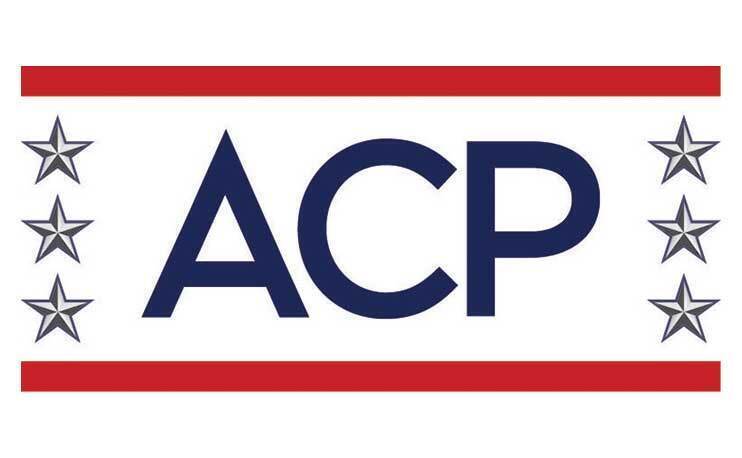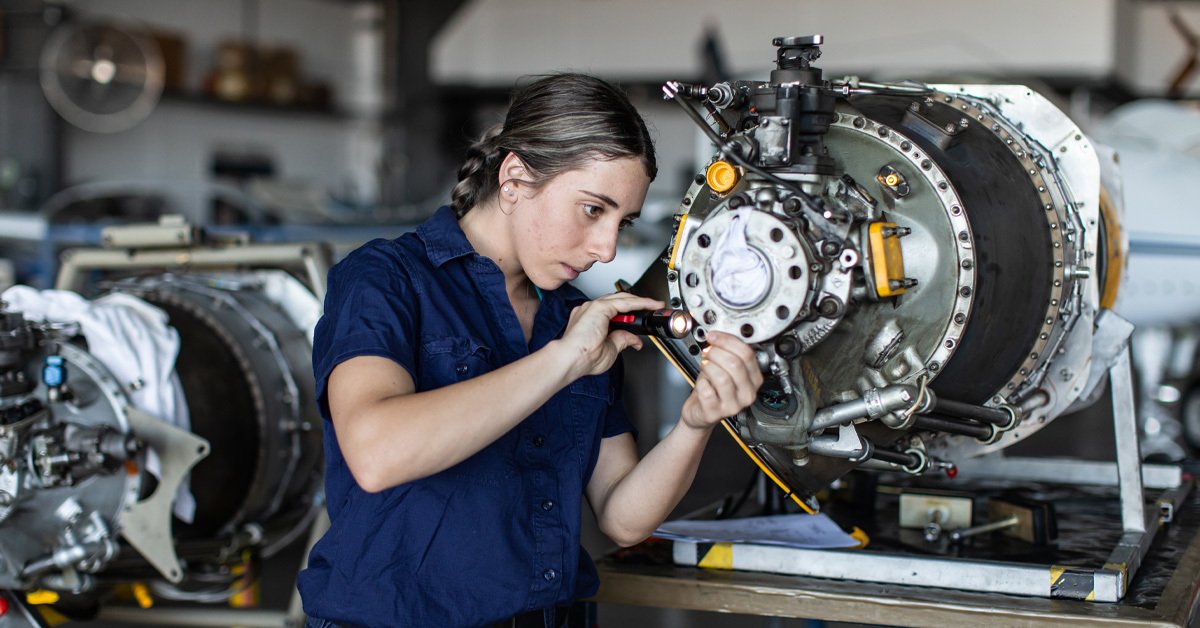By Pauline Fleming, ACP Operations Associate
In the job market today, there is an avenue that many job seekers may neglect to consider: the skilled trades. Fields like manufacturing, carpentry, welding, and construction provide employees with rewarding and adaptable career paths. These occupations foster a set of skills and a work ethic that is valuable personally and professionally, and is highly in demand.
US Navy veteran Marcos Alvarez was always interested in cars growing up. Still, when he joined the Navy as an aircraft mechanic, he had no idea he was acquiring a marketable skill set and a new passion.
Hersey Jackson, another Navy veteran, became interested in welding after a buddy of his showed him how to do it, but it wasn’t until his time shipbuilding in the Navy that he understood the personal impact welding had on him. “It’s a hands-on art—building the world that we live in now,” he says. “What excites me most about the industry is that it’s rewarding; you always get to feel like you accomplished something.”
Jackson’s American Corporate Partners (ACP) Mentor Sarah Gentry, lead general foreman at Huntington Ingalls, echoed these sentiments: “Welding is a great field to pursue due to the variety of options when it comes to factors like location, various companies offering different benefits, and the pride that comes along with the importance of the things that you work on.”
Across the board, people in skilled trades are inspired by the visible and tangible results of their efforts. For oilfield production mechanic James Wingate, ACP mentor to Alvarez, it is inspiring to see the product of his team’s work and know that he contributed. He reflects on the sense of camaraderie and discipline that the job necessitates.“We look out for each other, if there is an emergency, if a fire breaks out, we have to be able to count on each other and understand the chain of command.” Of his team, he says, “They have a job to do, and it’s their prerogative to get it done.”

For veterans, that line of thinking is very familiar. Jackson’s comfort working with a team, insight into different types of people, and ability to accept criticism have been crucial to his growth and success as a welder. He credits these skills to his time in the military. His mentor, Gentry, gives this advice to people starting out in welding: “Be patient and persistent. A lot of people come into the field nowadays with minimal to zero experience and expect to be the best on day 1 or even after their first month. Welding is an art and is something that takes time to perfect.”
Alvarez also attributes his strengths as an aircraft mechanic to his time in the Navy. “In the civilian sector, there are not as high of stakes, there is a different urgency,” he says “Vets have an attention to detail under pressure, because they have dealt with the most stressful environments.” In the Navy, his manual became his bible; he logged every move he made, and deadlines were unyielding. On the civilian side, the emphasis is different, but he carries his experience with him and uses it to benefit his team.
Another industry where veterans can transition almost seamlessly is construction. Dylan Allen, another ACP mentor and a project manager supervisor at Nucor, served in the US Army for three years and landed his first civilian role as a project manager. He already had the leadership skills he needed; the roles were parallel to the military. He was comfortable being part of something bigger than himself and working with a team to accomplish a certain mission. “Although the tasks at hand are different, the underlying concepts of the construction industry tie directly back to military training and experience,” says Allen “While it may take some time to learn a new industry, veterans are prepared with the intangible skills it takes to be successful.”
The skilled trades are a test of will as well as skill. A willingness to learn is as important as technical expertise; both serve as lifelong assets. Wingate says the most important skills in the skilled trades are a strong work ethic and a good attitude. From there, “mechanical aptitude is mechanical aptitude.” As those skills transfer across locations and industries, a career can be varied, fruitful, and fulfilling.
Veterans can find their place in the skilled trades with the help of an ACP mentor. ACP is a national non-profit organization that offers a year-long, one-on-one customized mentorship to post-9/11 veterans and active duty spouses at no cost. Mentors from highly regarded companies like Nucor, Oxy, and Huntington Ingalls use their industry knowledge to guide protégés into civilian careers in the skilled trades. Interested veterans can apply here.






